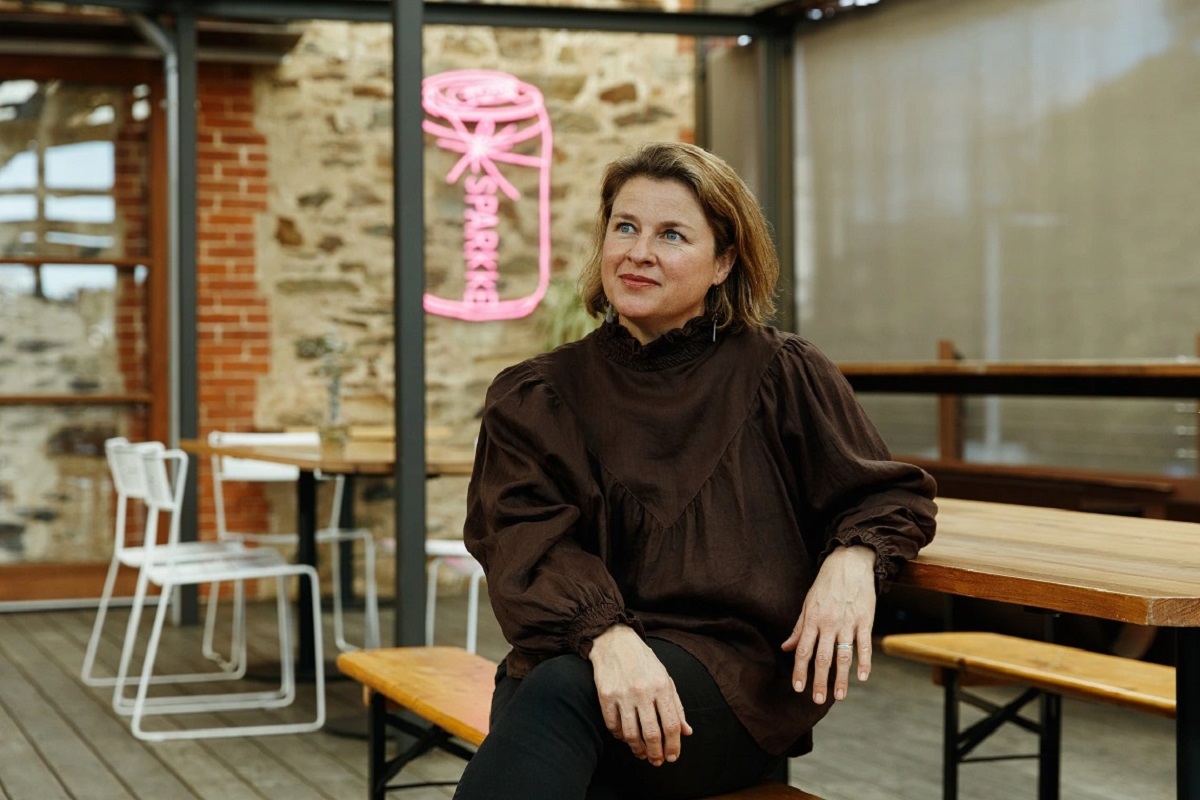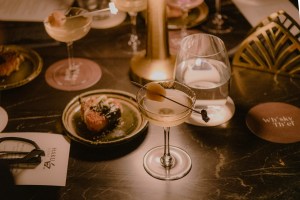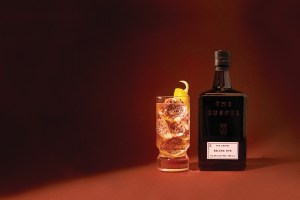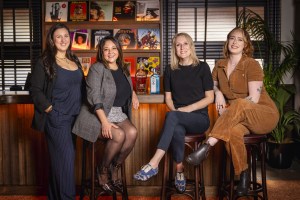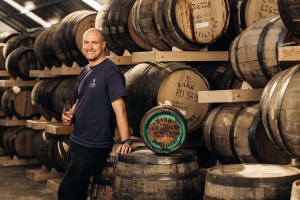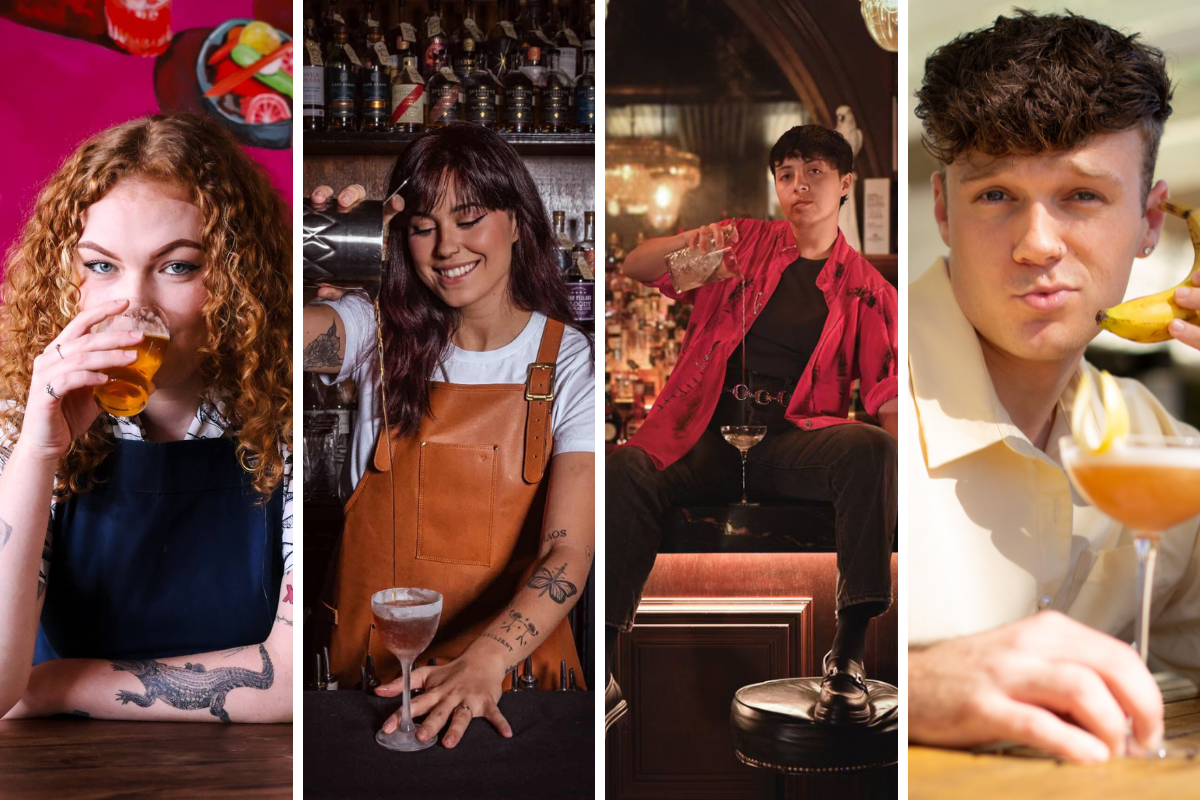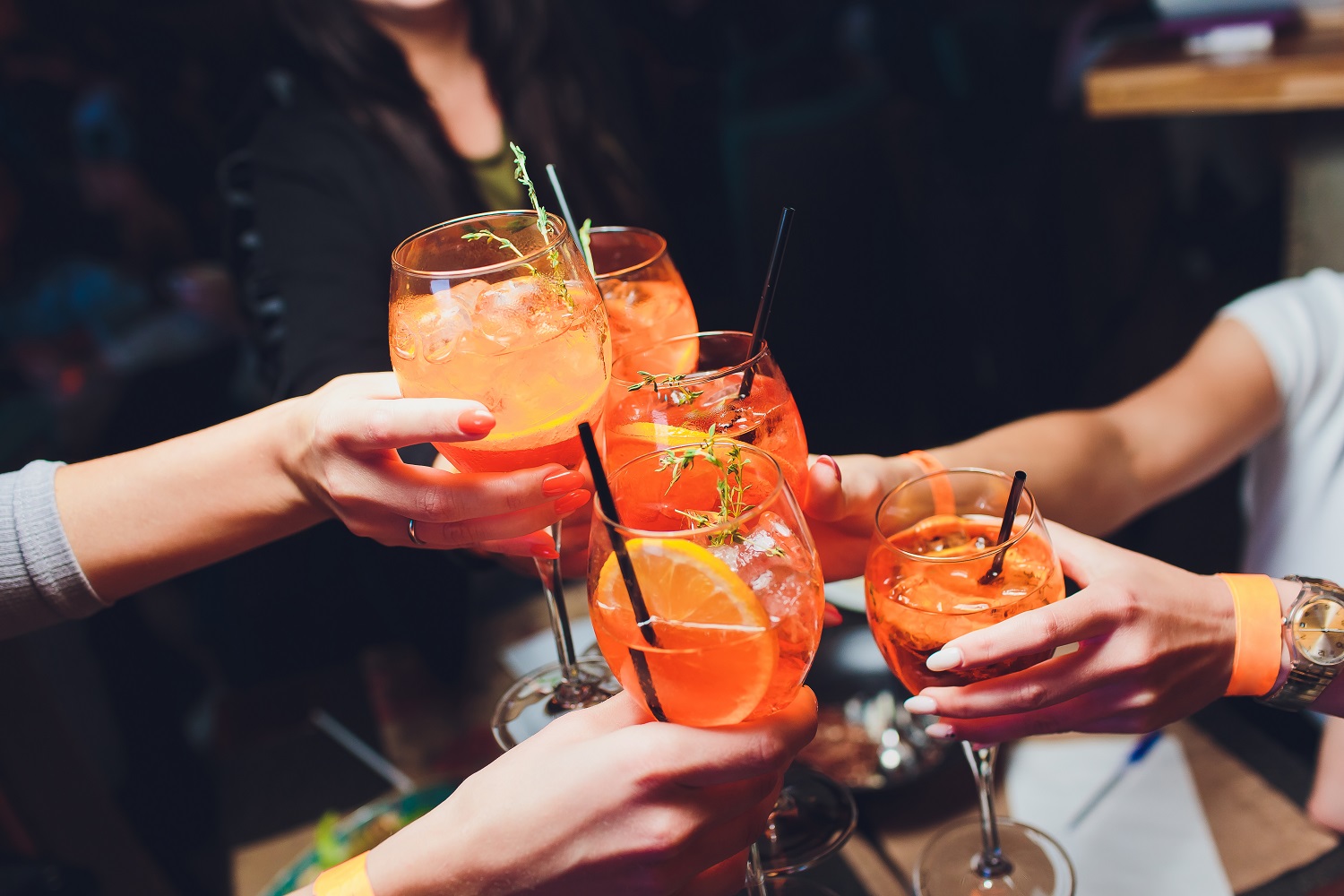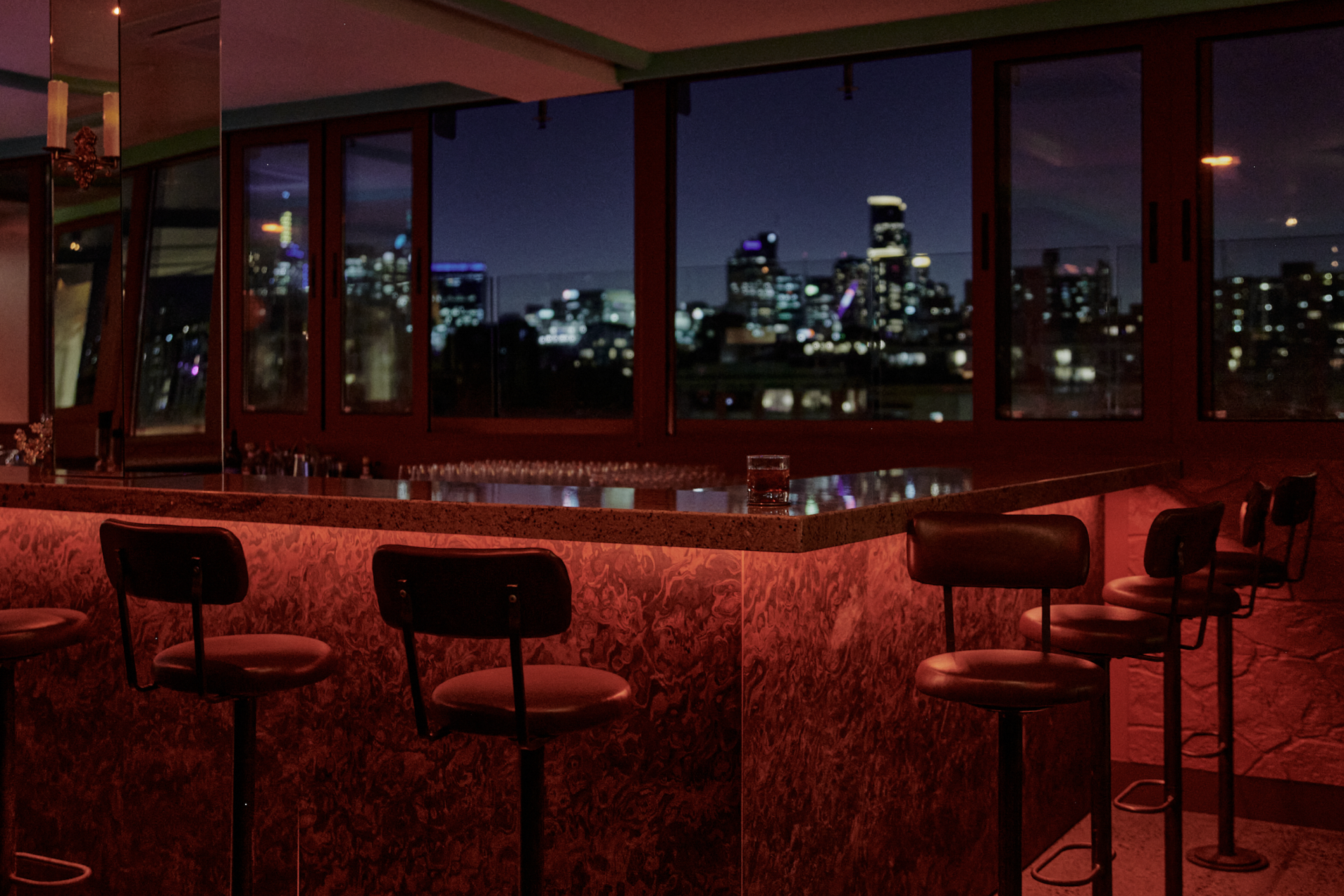Bars and Clubs‘ sister title, The Shout is running an Industry Women Spotlight Series, sharing the stories of women from across the industry, raising awareness for the challenges they face and passing on their advice for the next generation.
The series has previously spoken with Vanessa Wilton, Co-founder and Marketing Director at Sydney distillery, Manly Spirits Co., Alissa Gabriel, Bars Manager at Hinchcliff House, Ciara Doran, Co-owner of The Doss House and Frank Mac’s and Ellen Weigall, Founder and Director of Baby Pink Gin.
Through regular interviews and profiles, the series aim to hero the visibility and inspiration that is common on International Women’s Day, supporting the voices of women in different sectors of the liquor and hospitality industry. It’s important these conversations happen more frequently than just once a year.
The series returns with a profile of the incredible Rose Kentish, a winemaker, distiller and flavourist, and one of the Founders of Sparkke, a female-led business that brews, distils and operates a pub in Adelaide.
Kentish has a quite a uniquely wide experience in the hospitality and liquor industry, but where it started was through an interest in creation. Growing up she said her mother was a full-time producer, making everything from scratch – bread, cakes, meals and even butter. Being involved with this from a young age, Kentish said she has “never been scared of the idea of preparation and creation of things.”
That essence stayed with her when she left school, and ended up as a cook and Governess on a station during a gap year. This is when the idea of becoming a maker really started to take hold, although at the time, Kentish said she wasn’t sure just what she wanted to make, although she did have a big love and appreciation for wine.
Kentish’s husband had grown up on a vineyard in McLaren Vale, although he didn’t know much about the technical aspects of growing at that time. But after some travelling, exploring and trying to figure out what to do next, the pair eventually decided to take the opportunity to buy his parent’s vineyard when it was put on the market. Kentish said this was her husband’s idea at first – he thought she would be great as a winemaker due to her natural ability to interpret wines she was drinking. Meanwhile, he would learn to grow the grapes and take care of the viticulture side of the operation.
Kentish and her husband then engaged a technical winemaker and grape grower so they could learn everything they needed to rejuvenate the vineyard and start making the best wines they could. Kentish released her first Shiraz in 2001, and said she just kept putting “one foot in front of the other” after that.
“It was really not very planned, but definitely driven by intuition, passion, and a desire to learn. I had to squash those thoughts that your brain tells you – ‘you don’t even know how to do this, you can’t do this, what would you know about winemaking’. I just had to concentrate on what I was making and what I loved,” Kentish said.
Over the next 15 years, Kentish made wine, built her brand and exported product all around the world. After a couple of bad vintages for the McLaren Vale region, Kentish then had another idea – to move to the south of France and learn the technical aspects of making rosé.
It was hard to convince her husband and kids to come along for the ride, but they did, and now Kentish has added an Australian interpretation of French rosé to her range, made with fruit that she helps harvest each year in France.
Always growing and learning
While in France, Kentish spent some time on the island of Corsica, where she had the opportunity to play on a basic copper pot still and create eau de vie with “no pressure of expectations.”
Kentish had been doing that for about 10 years, selling the eau de vie to the local Corsican people. In the meantime, she was still winemaking and had also co-founded Sparkke Change Beverage Company with Kari Allen in 2016.
Sparkke began as a beverage company with cans featuring messages that sought to raise awareness about a range of issues, from climate change and asylum seekers to gender and racial equality. It then also expanded to open a brewpub in Adelaide, Sparkke at the Whitmore, in 2019.
Sparkke had always intended to one day expand into spirits, but hadn’t quite figured out exactly what to do in the space, other than some collaborative gin distillation with other distilleries. But when the pandemic first hit Australia and venues closed down, these intentions and Kentish’s distillery experience helped answer a problem surrounding what to do with the kegged beverages that now could not be sold.
“At the beginning of COVID I sourced a little copper still out of Portugal, and I started distilling the hard lemonade, the cider, the ginger beer and the other beers to see what they tasted like as a premium spirit, and what I might do with them. From the hard lemonade, I ended up making a honey malt liqueur… and a red amaro with the apple cider. They just did really well and people responded beautifully,” Kentish said.
These initial products were only sold to Sparkke subscribers, as Kentish and the team tested the waters about what people would want. But then as Kentish distilled and sold the rest of the $300,000 worth of brewed product, she thought about what she would want to create with a spirits brand, outside of pandemic situations.
Full Circle Spirits was born at the end of last year, launching with five gins featuring botanicals primarily sourced and foraged by Kentish in the Adelaide Hills. Sustainability and empowerment is core to this brand, including with its whisky program, which has partnered with a local barley grower and is about to put down a new make spirit.
“My passion is around what I’m making – 25 or 26 years of making, and being defined as a maker. But I’m also not pigeon-holing what I am and what I do,” Kentish said.
“A lot of people will just do one thing, but I see myself as quite a broad maker, with a love of flavour and aromatics, and I will continue to try and stretch and grow, all my life, to the point where in COVID last year, I started and have done two levels of perfumery out of the south of France.
“The idea is about refining and honing my skills. I think if I can understand how to make great perfume and practice that, I can use similar techniques in other aspects of my making. If I can use some of the language, techniques and ideas from perfumery in that way, then the result is only going to be more complex, more beautiful and more aromatic.”
Women to the front
Starting off in the industry the way she did, Kentish said she never saw herself as a ‘female winemaker’ but just as ‘winemaker.’ She believes she has been lucky at those initial stages of her career to be supported by her viticulturalist husband as they worked vintages together while also having four children.
Kentish said her journey surrounding the importance of lifting women in the industry has happened largely in the large decade, especially after being the only female finalist nominated for the Australian Winemaker of the Year in 2014. She didn’t win that year, but the following year did – however, it was in a completely different award solely for women winemakers. This award was something she didn’t nominate herself for, and she was intrigued by it.
The organisers of the award explained to Kentish what they were trying to achieve by heroing female winemakers, something she was glad to have heard at the time. It was about showing women that winemaking was a great career option, even with children, and setting a positive example for future generations.
“In the previous 10 years before that award, in 2005, the number of women winemakers in Australia was 15 per cent. In 2015, it had gone down to eight per cent and it was continuing to decrease,” Kentish said.
“It’s so important for everyone, but particularly women, to see other women leading, doing good work, creating love and interest in their space, and then still being able to have a family if they choose to, and do other things too.”
Providing more opportunities for women in the industry has been a focus for Sparkke too, although Kentish said it originally started as a business that was all about “inclusivity and diversity, and wanting to create a diverse environment rather than opportunities being mainly available for men.
“We were becoming known as a company that was all about providing opportunity for women, and we thought, if that’s what we need to do in order to create diversity, then that’s what we’re about. It’s grown from there,” Kentish said.
“It’s been a really tough ride and has been one of the hardest things I’ve ever done. I think that was because we were at the very beginning of conversations that needed to be had… the things that we were being told were too risque and too out there, now are actually common conversation.”
Kentish said that six years ago, their idea of talking about sexual consent on a can was “outrageous”. Today, to see people like Grace Tame embraced as Australian of the Year for her message, shows how far we’re coming.
“We wanted to make sure that we were part of the change we wanted to see in the world, and that we’re supporting the people that want change, that don’t want to put their heads in the sand and don’t want to be stuck in the mud. My focus as co-founder has been what’s inside the can and bottle, but I’m also deeply passionate about social change and I am proud of what we’ve done,” Kentish said.
Messages for positive change
In both the hospitality and the production space, Kentish said a lot of people, both men and women, have left during COVID. She said it should be a focus of these industries to work together to figure out how to attract all of this talent back, and make the industry a more secure, certain and professional career choice for everyone and anyone again.
Things that Kentish has encouraged is more flexibility, including job-sharing for example, supporting career development and learning, and focusing on the things about the industry that make it vibrant and rewarding, rather than being stuck in negative environments caused by the pandemic and its restrictions. These types of things will keep everyone invested in the industry, which will create a much more supportive space that empowers women.
“What I understand is that the same number of women and men are studying oenology, but its 10 years down the track that the women are not there anymore. They’ve moved into repping jobs, or somewhere else within the supply chain, or they’ve left completely. I believe a lot of that is because of inflexibility, and the fact that if you’re 10 years into your career and you cannot see that many women around you having success while also having the time to raise a family, play in a band or enjoy any other major thing in their life, then you’ll think ‘this isn’t the career for me’,” Kentish said.
In terms of a message of inspiration for this next generation of women in the industry, whether part that may be in, Kentish said: “Be humble and brave.”
“To be humble is to say what you don’t know… but be brave by not waiting until you’ve got a degree or until you’ve been offered something – just show up and learn.
“This is a really rewarding career, and in time, with the right pressure placed on the industry, it will become one where jobs can be shared and balanced careers can happen.
“If you’re passionate, there’s lots of good stuff in this industry – go and find someone like me, show up and say you’re keen to learn.”
Catch up on all the previous profiles from The Shout’s Industry Women Spotlight series here.

